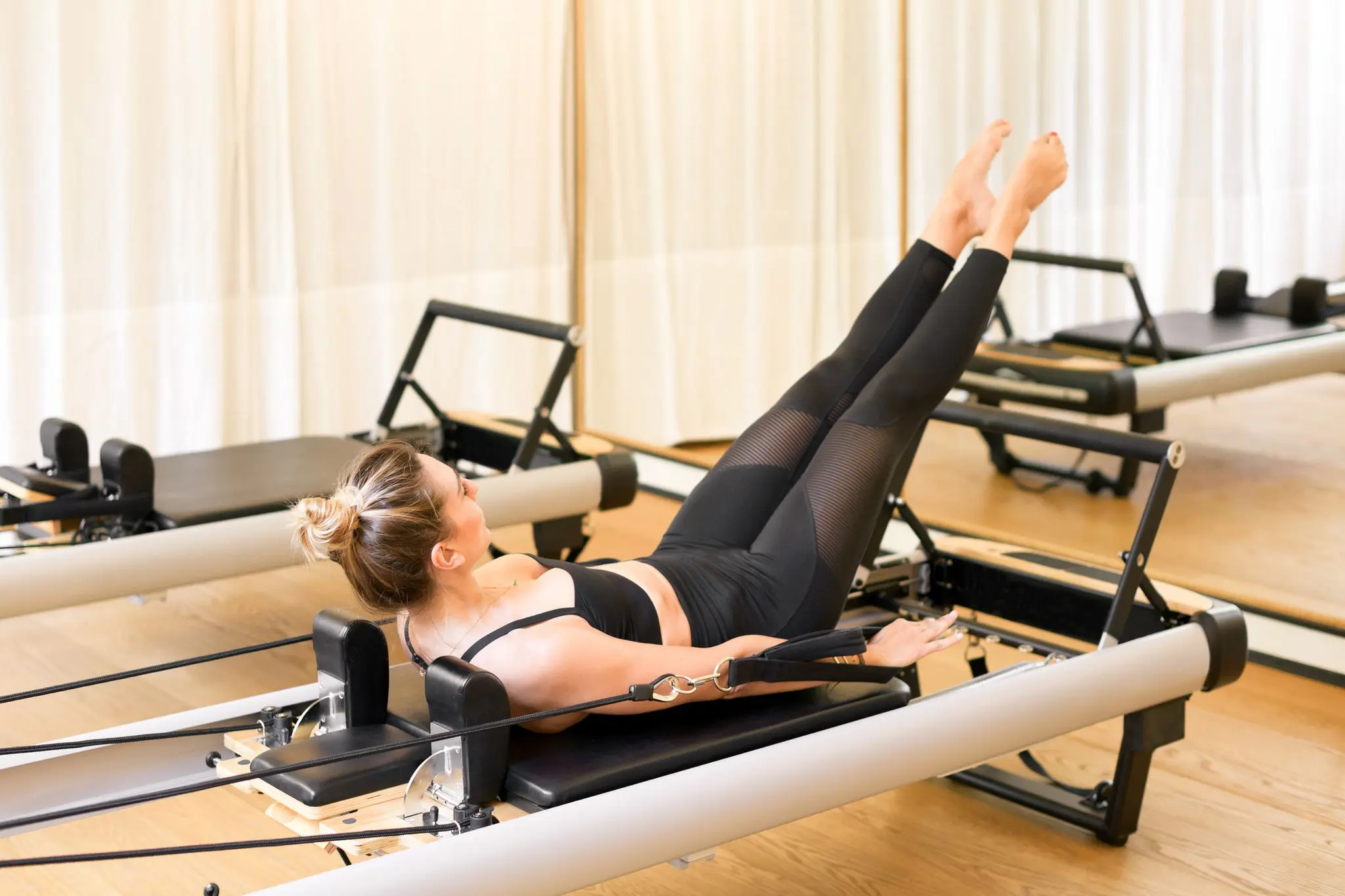Menopause is a natural biological process that occurs in women as they age. It signifies the end of menstrual cycles, which usually occurs between a woman’s mid-40s to mid-50s. Menopause causes various physical and psychological changes due to hormonal fluctuations, which affect a woman’s overall well-being. Strength training has proved to be a promising approach for managing menopause symptoms and promoting overall well-being.
What is Menopause?
Menopause is caused by the loss of ovarian follicular function and a reduction in circulating blood estrogen levels. This results in the ovaries failing to release eggs for fertilization.
There are three basic stages of menopause:
Perimenopause stage
- The first sign of this stage is typically a change in the normal pattern of the menstrual cycle. This occurs around 3-5 years before menopause. During this stage, estrogen and progesterone levels start to fluctuate, which can lead to mood changes, irregular menstrual cycles, and other symptoms. Although the possibility of getting pregnant at this stage is low, it is still possible, and contraceptives are still recommended.
Menopause stage
- Defined as the absence of menstrual cycles for 12 months in a row without other causes including illness, medication, or pregnancy. Once menopause is reached, pregnancy is no longer possible. Improving menopause care in Hong Kong.
Post-menopause stage
- Where a woman has reached the end of her reproductive years. Even though the ovaries still produce low levels of estrogen and progesterone, menstruation and ovulation have completely stopped. The symptoms experienced in the previous two stages will continue, but they will gradually become less intense over time. Women in this stage also face other challenges, such as an increased risk of heart disease and osteoporosis, due to the decrease in estrogen levels. Learn more about our services—visit Hong Kong Sports Clinic .
Common symptoms during or after menopause
- Hot flashes
- Mood swings
- Changes in body composition
- Irregular menstrual cycle
- Insomnia
- Vaginal dryness
- Palpitations
- Symptoms can vary in severity and duration among women.
How can strength training help?
- Resistance training improves menopause-specific quality of life, reducing VMS, sleep problems, and menstrual symptoms.
- Exercise training increases muscle mass, reduces fat mass, and improves body composition in postmenopausal women.
- Exercise effects differ based on type and duration in postmenopausal women.
- Aerobic exercise aids fat loss, while resistance exercise promotes muscle gain.
- Combined training (aerobic and resistance exercises) is beneficial for body composition.
- Resistance training promotes better bone health, and hormonal and metabolic changes, and may improve cardiovascular function.
- Medium- and long-term interventions yield the most benefits, regardless of age.
- Sustained and consistent exercise programs are essential for significant improvements.
Apart from resistance training, here are some other life changes that can help manage and alleviate the effects of menopause:
- Adopting a balanced diet that is high in calcium like milk, yogurt, and kale to support overall health and maintain bone health. Getting regular Vitamin D from sunlight or supplements that keep the bones healthy.
- Managing stress through deep breathing, meditation, and yoga can alleviate symptoms like hot flashes and mood swings.
- Disrupted sleep is often a symptom during menopause, establishing a sleep routine and avoiding caffeinated beverages can promote better sleep quality.
- Smoking and excessive alcohol assumptions can increase menopause symptoms. This can also increase the risks of health issues, particularly in cardiovascular disease due to the decline in estrogen levels after menopause.
Capel-Alcaraz, A. M., García‐López, H., Castro‐Sánchez, A. M., Fernández‐Sánchez, M., & Lara‐Palomo, I. C. (2023). The Efficacy of strength exercises for reducing the symptoms of menopause: a Systematic review. Journal of Clinical Medicine, 12(2), 548. https://doi.org/10.1080/13697137.2021.1941849
Berin, E., Hammar, M., Lindblom, H., Lindh-Åstrand, L., & Holm, A. S. (2021). Effects of resistance training on quality of life in postmenopausal women with vasomotor symptoms. Climacteric, 25(3), 264–270. https://doi.org/10.1080/13697137.2021.1941849
Khalafi, M., Maleki, A. H., Sakhaei, M. H., Rosenkranz, S. K., Pourvaghar, M. J., Ehsanifar, M., Bayat, H., Korivi, M., & Liu, Y. (2023). The effects of exercise training on body composition in postmenopausal women: a systematic review and meta-analysis. Frontiers in Endocrinology, 14. https://doi.org/10.3389/fendo.2023.1183765


